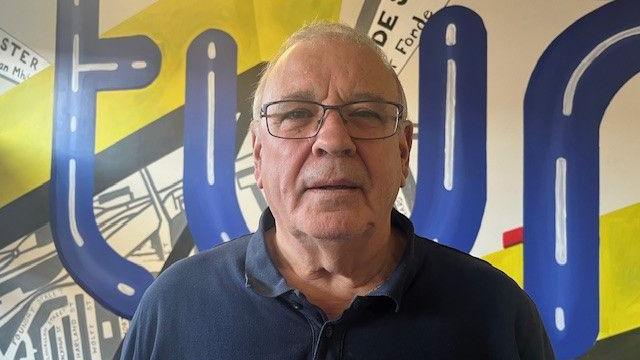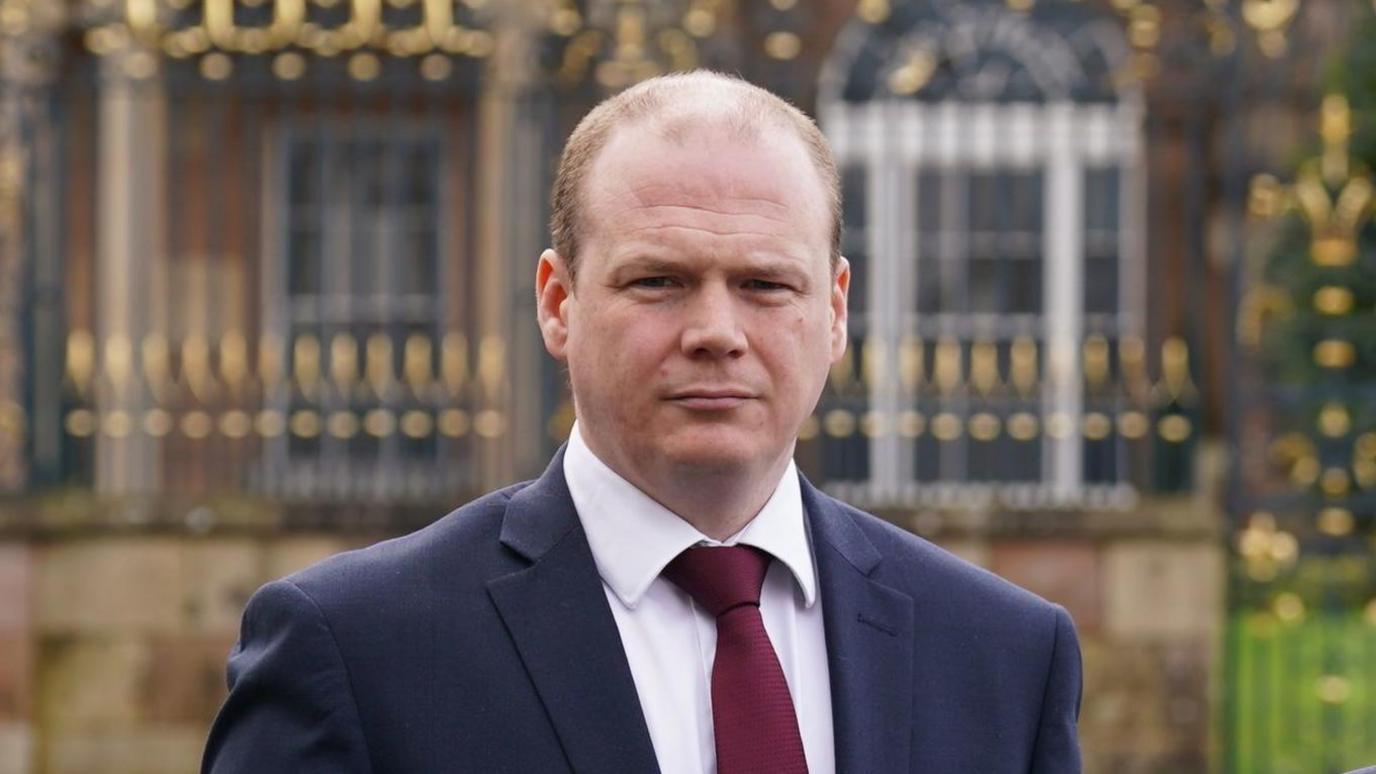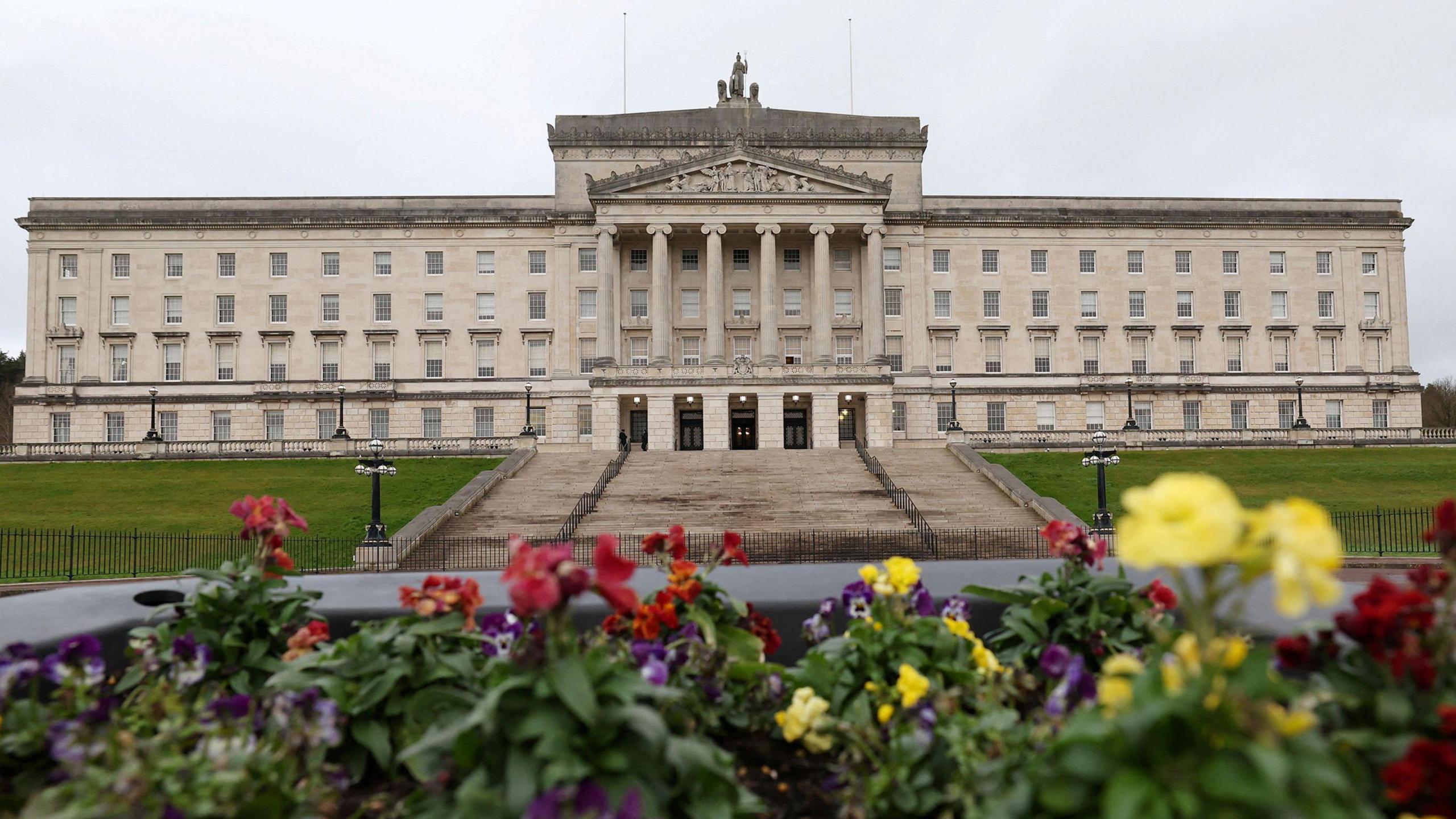Former PUP leader says loyalists have no trust in government

Brian Ervine has said that loyalists can no longer trust the government
- Published
A former leader of the Progressive Unionist Party (PUP) has said that loyalists can no longer trust the government.
Brian Ervine was speaking after a Stormont Committee have asked for the minutes of a meeting which took place between the Loyalist Communities Council (LCC) and the Democratic Unionist Party (DUP) Minister for Communities Gordon Lyons.
"The problem is we can't trust that the union is safe and we can't trust government," Mr Ervine said.
Mr Ervine was leader of the PUP from 2010 to 2011.
When asked on Good Morning Ulster why the LCC met government ministers, Mr Ervine said: "The real question is, is there any confidence in government? Is there any trust in government anymore?
"This means we are going to have these paramilitary groups continue in the background waiting on a time when they may be called upon."
The Department for Communities confirmed that Gordon Lyons met the LCC "to discuss economic and social deprivation in unionist communities".

A delegation from the Loyalist Communities Council met the DUP's Gordon Lyons
In September, the DUP Education Minister Paul Givan faced criticism for meeting the group.
The LCC includes representatives from paramilitary groups the Ulster Volunteer Force (UVF) and Ulster Defence Association (UDA).
Mr Ervine said that it is better that ministers and the group are talking rather than not.
He said: "There are people in government with very chequered pasts and the government talk to them."
LCC meeting 'not prioritised'
David Campbell, the chair of the LCC, said: "I find it astonishing that for years we met as the LCC with ministers including Sinn Féin ministers.
"We met with John O’Dowd during his time as minister of education and we met and communicated regularly with Martin McGuinness as DFM [deputy first minister] and with ministers of other parties."
Mr Campbell said he understood other groups' frustration over delays in meeting government ministers.
He said: "I contacted the private offices of both ministers two days after they were both appointed so we have had to wait roughly six months to get our meeting.
"The sense that we were prioritised over others is simply not fair on the ministers or their offices."

David Campbell from the Loyalist Communities Council
On the meeting held with the education minister, Mr Campbell said that an Irish language school in east Belfast "does not have any support within that community" and the meeting was to "reflect those feelings".
He added that "it took two minutes out of a meeting that lasted an hour and 15 minutes".
However, Mr Ervine said: "I am very disappointed and dismayed that the LCC should pick on a little school on the Montgomery Road that was doing no harm to anyone.
"I think that was a bad decision on their part. We have [Irish language project Turas] on the Newtownards Road and it's attended by over 600 people a week who want to learn Irish from the unionist community. There is a desire and demand for this school."
Mr Ervine believes that this conversation took away from other "valuable conversations" that the LCC had with the minister.
He said: "There is fear within the loyalist community, we’ve been warned in the past that the institutions we have set up could become a cold house for unionists."

Mr Campbell added that the groups within the LCC have transformed "almost entirely" from their paramilitary past.
He said: "We have a very effective transition programme and the groups I am involved with have virtually completed their transformation.
"As far as I'm concerned I'm working with former paramilitaries, not active."
Senior PSNI officer Jon Burrows
Analysis: Julian O'Neill, crime and justice correspondent
Loyalist paramilitary groups remain embedded in some areas three decades on from their ceasefire.
They have a controlling influence on thousands of lives.
Today they are more associated with criminality than a political cause.
Official reports state there has been some reduction in their activity, partly due to police operations, among other things.
There continues to be debate about transition towards eventual disbandment.
The UVF standing down its east Belfast leadership last year was seen in positive terms by some.
The idea of talks involving a government-backed mediator remains on the table.
I understand the last government got cold feet, but will Hilary Benn grasp the nettle?
Dublin is said to be strongly in favour of the move.
Reaction to DUP ministers meeting the LCC in recent days shows it could be a controversial course of action.
Related topics
- Published4 October 2024

- Published1 October 2024
